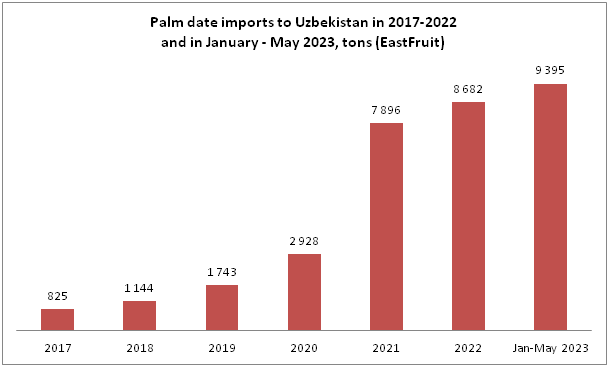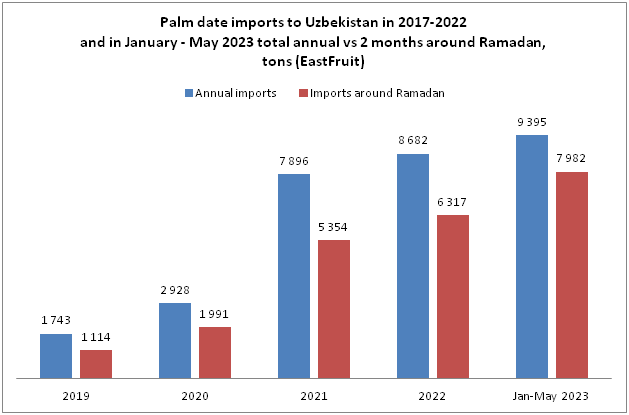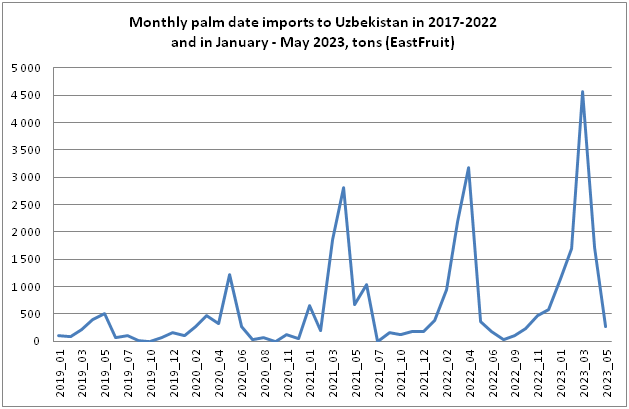Uzbekistan has experienced a remarkable surge in palm date imports in recent years. From 2017 to 2022, date imports in the country skyrocketed from 825 tons to 8,700 tons, a more than 10-fold increase. This surge in consumption can be attributed to two factors: a significant reduction in import duties on dates and a growing number of Uzbek citizens observing fasting during the holy month of Ramadan.

Dates are not a staple food in Uzbekistan or among the local cuisine. However, dates hold special significance for Muslims, who consume them when breaking their fast during Ramadan; 60% to 75% of the annual date consumption in Uzbekistan occurs during this one-twelfth portion of the calendar year.
Data reveals that the import volumes of dates peak one and a half to two months before Ramadan and continue during the holy month. The reduction in import duties played a vital role in increasing the volume of data imports. Starting in 2018, Uzbekistan witnessed a steady growth in data imports as the import duty rate was lowered or even abolished periodically.

Saudi Arabia historically held a significant market share in Uzbekistan's data imports. In 2022, Saudi Arabia's supply sharply declined, accounting for only 0.3% of total imports.
Iran emerged as the main beneficiary, doubling its date shipments to Uzbekistan in 2022 and capturing 93% of the market share. Tunisia and Turkey also increased their presence in the Uzbek date market, while imports from Israel and Algeria decreased.

The current trend suggests a further increase in data consumption in Uzbekistan, presenting opportunities for other countries to tap into this growing market. Egypt, in particular, is expected to enhance its date exports to Uzbekistan in the coming years.
Follow Daryo's official Instagram and Twitter pages to keep current on world news.
Comments (0)